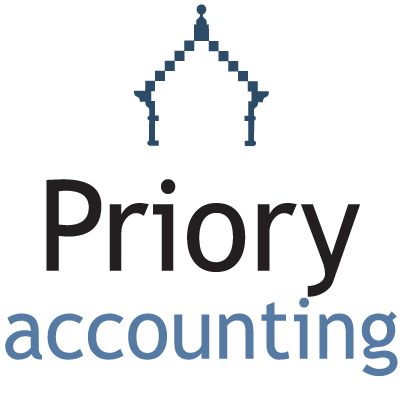Starting a new business
One of the very first items you will be faced with after starting your new business is choosing the right structure. It’s important to get this right and a lot depends on your personal situation and future plans including your potential clients. One of the major repercussions of the structure you choose will be how and when you are taxed. Here are the three main structures than you should be familiar with before making your choice. Of course, we can help you at Priory Accounting and would strongly advise that you sit down with an Accountant to explore all the implications first.
Sole trader
This is the simplest way of trading. There are only a few formalities to trading this way, the most important of which is informing HMRC. You are required to keep business records in order to calculate profits each year and they will form the basis of how you pay your tax and national insurance. Any profits generated in this medium are automatically yours. The business of a sole trader is not distinguished from the proprietor's personal affairs so that if there are any debts, you are legally liable to pay those debts down to your last worldly possession.
Partnership
A partnership is an extension of being a sole trader. Here, a group of two or more people will come together, pool their talents, clients and business contacts so that, collectively, they can build a more successful business than they would individually. The partners will agree to share the joint profits in pre-determined percentages. It is advisable to draw up a Partnership Agreement which sets the rules of how the partners will work together. Partners are taxed in the same way as sole traders, but only on their own share of the partnership profits. As with sole traders, the partners are legally liable to pay the debts of the business. Each partner is 'jointly and severally' liable for the partnership debts, so that if certain partners are unable to pay their share of the partnership debts then those debts can fall on the other partners.
Limited company
A limited company is a separate legal entity from its owners. It can trade, own assets and incur liabilities in its own right. Your ownership of the company is recognised by owning shares in that company. If you also work for the company, you are both the owner (shareholder) and an employee of that company. When a company generates profits, they are the company's property. Should you wish to extract money from the company, you must either pay a dividend to the shareholders, or a salary as an employee. The advantage to you is that you can have a balance of these two to minimise your overall tax and national insurance liability. Companies themselves pay corporation tax on their profits after paying your salary but before your dividend distribution. Effective tax planning requires profits, salary and dividends to be considered together.
There are many advantages as well as disadvantages to operating through a limited company.
New companies can be purchased relatively cheaply in a ready-made form usually referred to as 'off the shelf' companies. There are additional administrative factors in running a company, such as statutory accounts preparation, company secretarial obligations and PAYE (Pay as You Earn) procedures. A big advantage of owning a limited company is that your personal liability is limited to the nominal share capital you have invested.




